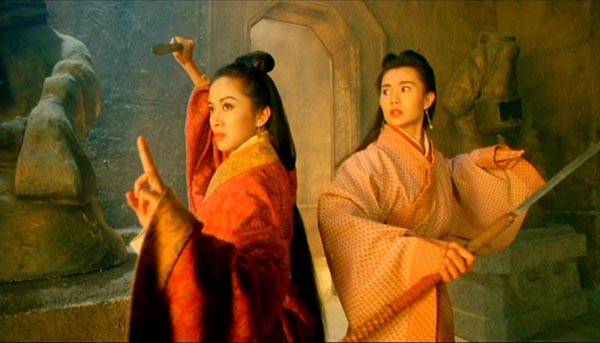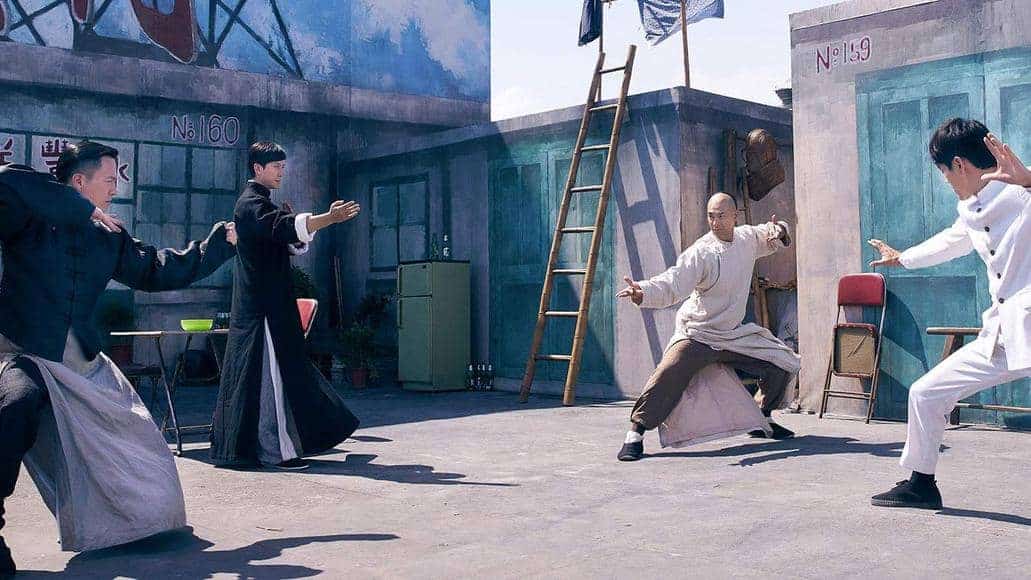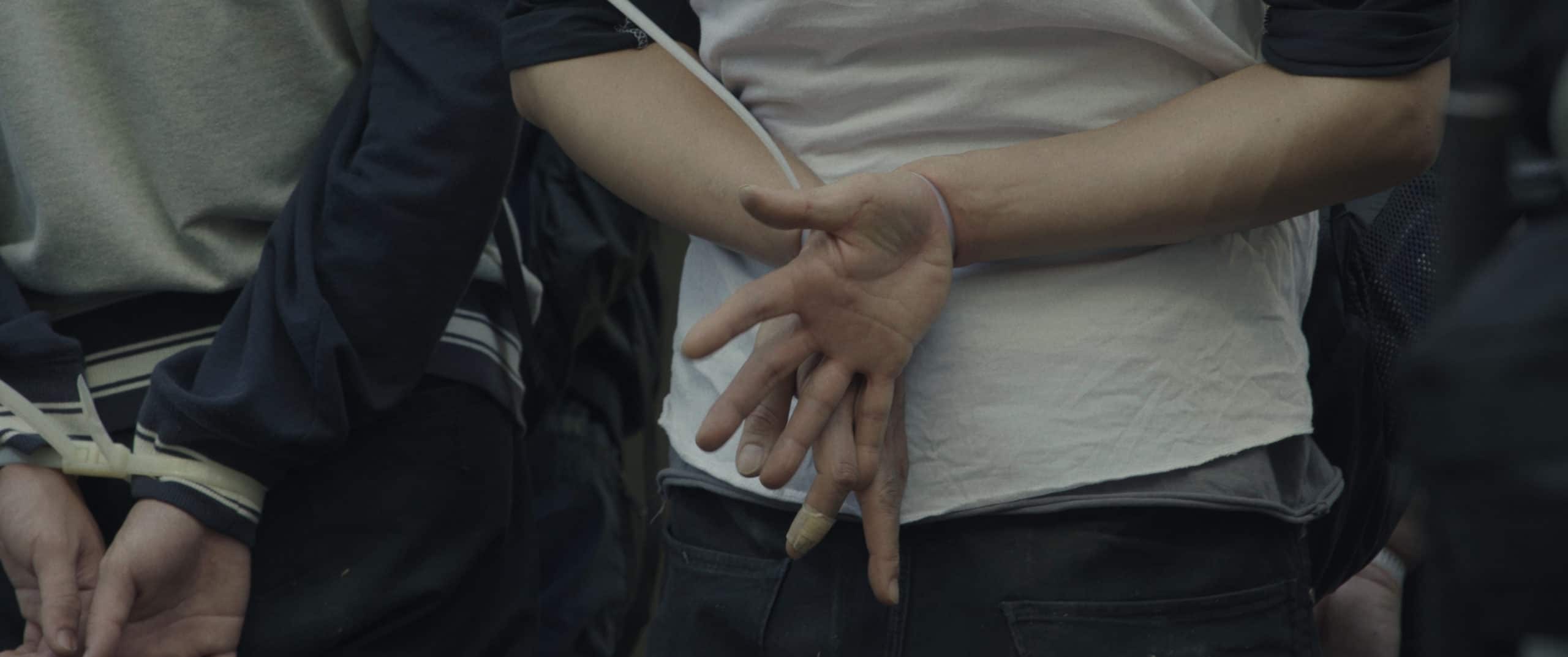By Wally Adams
Fran Rubel is one of those figures in cinema that left an invisible impact behind the scenes and from multiple angles. Most people would think they never heard of her, but surprisingly very high numbers have partaken of her products, services or things influenced by her and her partner over the years. In concrete terms, she's best known for making the original “Buffy the Vampire Slayer” movie which later spawned a more famous TV series. But there's more to her legacy than that, to which the largely forgotten “Tokyo Pop” was both the stepping stone and emblem towards wider goals.
“Tokyo Pop” is screening at Japan Society
Fresh out of NYU, Rubel had been hired in Japan as a script supervisor for Japanese publishing and film mega-tycoon Haruki Kadokawa's company. Kadokawa Pictures had achieved huge success in previous years with mega-hits including the classically outlandish “Sailor Suit and Machine Gun” and Kon Ichikawa's record-breaking 1976 “The Inugamis”. Then in 1977, Kadokawa shot even higher with the mega-budget pet project “Proof of the Man” starring George Kennedy in an attempt to break into the American market. Unfortunately, while still successful domestically, the film was a failure internationally triggering a series of similar but bigger failures aimed at Hollywood. Kadokawa's only successful crack at US markets turned out to be he and his assistant's many trips to LA to buy hundreds of grams of cocaine (using millions from company coffers for the trips and drugs), ending in a huge drug bust, his arrest and arguably Japan's biggest entertainment scandal of the era.
But quietly on the set of that same international disappointment that foreshadowed that same downward spiral for Kadokawa, a forgotten, fascinating and felicitous footprint in international film history was talking place for two other people. There, Fran Rubel would meet that film's assistant director Kaz Kuzui, and the two would hit it off surprisingly quickly, eventually getting married. They then started their own film company Kuzui Enterprises, specializing in distribution and localization of foreign (including American) films and TV in Japan and independent US-Japan coproductions. In the 80s, they were literally the only ticket for Americans to see many famous and acclaimed contemporary Japanese films like “The Crazy Family” and “The Go Master” via theatre, VHS or laserdisc (as other distributors were still mostly stuck on Kurosawa, Ozu and Mifune). And likewise, even more importantly for Japan, Kuzui Enterprise became the first major modern independent film distributor, directly responsible for bringing breakthrough indies like “Stranger Than Paradise” and “She's Gotta Have It” (from fellow NYU alum Jim Jarmusch and Spike Lee) there. Their first project in the filmmaking category “Tokyo Pop” — written and directed by who was by then known as Fran Rubel Kuzui — was partially based on Rubel's own experiences.

After a long period of dead-end jobs and dead-end boyfriends in rock bands, singer Wendy (Carrie Hamilton) gets “tired of singing backup for creeps” in cities that “suck” like NYC and LA. So upon receiving a postcard of Mt. Fuji from her friend saying she should come, and hearing about foreign rock singers getting big in Japan, Wendy decides on a whim to try her luck, with help from her ex's money she made off with.
But alas, by the time she arrives in Tokyo, her friend has already gone to Bangkok, leaving her stranded without connection or language skills in a strange land. Luckily and/or perhaps unluckily, she soon runs across rock band leader Hiro (real-life 80s J-rock singer Diamond[o] Yukai ダイアモンド✡ユカイ), who's also a struggling singer trying to get his own band off the ground. While the two find they have much in common, connecting musically and romantically, they find even more differences — in culture, language, personal compatibility, and musical aspirations — threatening to break them apart. And their finally finding a potential big break as a token Gaijin act from shady record producer Dota (jidaigeki fixture Tetsurō Tamba!) proves a yet sharper double-edged sword.

Writer/director Rubel openly admitted to having no experience writing scripts and no one to turn to at the time for pointers. With that in mind, don't expect great cinema here. It becomes somewhat understandable soon enough why “Tokyo Pop” to this day never had any Western release on DVD or any other format past its initial VHS one when it was new. That's not to say that it's a terrible movie (there's actually much, much worse that has seen DVD and even blu-ray releases not least of which from the late 80s) or even less than quite worthwhile for select audiences. But it is an unabashedly niche product and one of a pretty particular time and place at that, made more out of love than serious aspirations.
But a labor of love it is: for Tokyo and Japan, for pan-rock music and rock/punk culture, for the spirit of youth adventurism, for its genial lead actors and for the bittersweet joys of shared unintelligibility (with the late Hamilton's New York accent used to just as quaint of effect as Yukai's more formally improper English). And in nearly every one of those departments, the love emanates a lot more clearly and strongly than the craft.
But if there are technical standouts, it's the surprisingly excellent cinematography (from James Hayman, who also co-shot the Chow Yun-fat-starring “An Autumn's Tale”) and set design, especially in being economical as they are. Reminding that Tokyo was already quite futuristic and unique in the 80s, it's the kind of prowess that comes more from people who knew exactly what and where they were filming and writing about, rather than ones who were refined experts, showing off the down and dirty world of underground concerts, pachinko parlors, video arcades, guesthouses and classic love hotels with garish erotic art decors.

And it's not just the places and things that are well-chosen here: also watch for some deliciously bizarre underground rock acts and other curiosities, some incredibly dated (ads for the Famicom [Nintendo] Disc System in the background) and some that will never die (a necessary cameo from X Japan, the quintessential Japanese underground rock band). It adds up to an interesting and even somewhat valuable document of its period and place, and the connection between two already partially synthesized underground cultures that was seldom explored at the time.
After all, “Tokyo Pop” was made years before modern otaku culture of anime and manga, completely mainstream videogames, Japanese fashion trends, ready availability of modern Japanese movies or karaoke would all take hold or become even remotely common in the West (and when most American movies involving Japan still had anachronistic ninja or sometimes geisha and Yakuza.) And indeed, the protagonist goes through the comic struggles of what are now familiar journey to Japan tropes, as Wendy gets lost in huge crowds, stuck being a hostess and singing karaoke, and struggles to decipher Japanese people's English as it gets lost in translation.

Speaking of which, that brings us to that infinitely more famous movie from 15 years later that would fully popularize many of those tropes. “Lost in Translation” indeed has many similarities and even follows some of the same trajectory as this film. The leads on LiT (mainly Bill Murray's character) get many similar setbacks, challenges and serious frustrations from cultural/lingual/social misunderstandings. In that regard, I have a strong feeling that this movie was not only seen by the makers of “Lost in Translation”, but also (to what extant uncertain) directly influenced them. They even gave a too-coincidental-to-be-coincidence nod to it in casting Diamond Yukai — hardly a ubiquitous presence in movies then — in a more minor but still memorable role (as the “Suntory Whiskey” commercial director).
But the key difference in “Tokyo Pop” is that neither the characters nor the movie itself end up being defined or defining themselves by their isolation (external and internal) and the alien nature of their host country. That being said, I dare say that I prefer and appreciate “Tokyo Pop” here more than “Lost in Translation” overall; not in raw cinematic terms, as this simply cannot match LiT's technical prowess, resources and talent (for seasoned actors, cameras, scripts etc) at hand. But I find this having considerably less cheapening and decorative treatment of its geographical subject matter despite the lesser resources, showing the protagonist's alienation without having to emphasize the Japanese as alien.

Here the Japanese characters even beyond Hiro are given significant characterization and personality (with their families, in conservations etc.), with even minor ones being given some (while LiT had even pivotal characters to the plot bordering on caricature). Likewise, the protagonists make the effort to overcome their alienation, and not by confiding in the familiar. They immerse themselves in each others' cultures in their own ways, with Wendy in the hot springs with elderly locals learning how to say “subarashii” (wonderful) and Yukai singing….“You Make Me Feel Like A Natural Woman”. And there's more detailed cultural observation and reflection (even when seldom explored poignantly) in addition to being an unmistakable precursor to the later movie as well.
But that comparison doesn't just apply to “Lost in Translation”. The majority of Hollywood movies heavily focused around foreigner experiences in modern Tokyo (and some other cities) whether comedy, drama or otherwise are catered most towards a certain (indeed majority) demographic of travelers or those thinking of it: those who will quickly start looking for other foreigners, the bars and nightlife districts, the global chain restaurants, watching the same movies and/or listening to the same music they did before. In other words, they continue extensively looking for their own country or at least a considerable portion of their comfort zone wherever they go.

And I actually don't blame them for that. But “Tokyo Pop” illustrates and catered to the more adventurous, resolute and yes, perhaps a bit masochistic about the challenges and woes of living and finding one's place abroad. And rough around the edges though it is, I can by all means still enjoy that and even more so, respect it. Rokku on! [Rock on!]
Side notes: As hinted near the end, in its themes and leanings this movie is actually a lot more “Tokyo ROCK” than “Tokyo Pop”, as in 1988 the term “pop” in Japan (which isn't really covered on it) most definitely would've brought more to mind say, Yumi Matsutoya or idols like Seiko Matsuda than the proudly freakish likes of X Japan.

This movie's level of obscurity is further reflected in its use by Japan Society, as it's clearly from an old Japan edition that doesn't have English subtitles for the Japanese content (which takes up about a quarter of the dialogue and singing). But with the unimaginative Japanese subtitles, viewers who could only understand Japanese wouldn't fare much better. For example, when Wendy yells, “you lay one finger on me and I swear I'll scream ‘rape!'”, it's quite feebly translated as “if you touch me I will scream!”. All the more reason Tokyo Pop still deserves a proper modern release.
“I'm pleased to nice to meet you. Nice please to meet you.”















